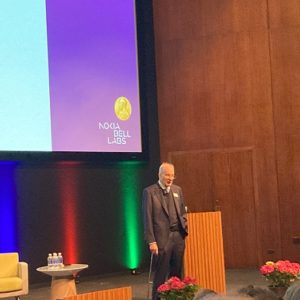Opinion: Why New Jersey Needs to be ‘Boring’
When I was an undergraduate student at Rutgers, it took my roommate, who didn’t own a car, well over two hours to get from New Brunswick to his parents’ house in Middletown – a mere 26 miles away. He was forced to take the Northeast Corridor train up, transfer onto the North Jersey Coast Line in Rahway and ride that back down to the shore. He dreaded it.
Besides Uber, not much has changed in the last decade when it comes to getting around the Garden State. This continues to hold back our economic progress.
In their 2014 book, New Jersey’s Postsuburban Economy, James Hughes and Joseph Seneca of Rutgers made it clear that legitimate breakthroughs in transportation need to happen in New Jersey in order to unlock real economic growth for the state in a sustainable way. But, back then, there were no clear solutions to this problem in sight.
That is no longer the case, thanks to The Boring Company, which Elon Musk founded in late 2016. The Boring Company digs high-speed Loop and Hyperloop tunnels, cheaply and quickly, without disturbing existing infrastructure. In fact, according to Musk, Loop tunnels cost only $10 million per mile. And, he says, their construction goes largely unnoticed above ground. On the other hand, the Gateway project will cost at least $30 billion or more, completely disrupt daily life and take forever.
Currently, there is no feasible way to build more trains, tunnels or roads to travel around New Jersey more efficiently and creatively. We’re too developed, and too strapped. For example, we can’t extend the North Jersey Coast Line train to Atlantic City – although the need to revitalize AC remains unmet. With Loop, and eventually Hyperloop, we could create a brand new system of transportation to complement our existing one, without disrupting life above ground.
As electric vehicles (EVs) become more prevalent, Loops can create better access to key locales in New Jersey that are currently disconnected. For example, Camden could be an access point for a Loop tunnel, better connecting it to the rest of New Jersey as the struggling city strives to revitalize itself.
Furthermore, Loops are protected from superstorms. In the event of another Hurricane Sandy, Loops would remain functional and safe. This is key as New Jersey aims to become more resilient to the effects of climate change.
Just recently, the New Jersey Innovation Institute (NJII) and Somerville-based HealRWorld announced a partnership to establish an accelerator program entirely focused on the global sustainable development goals (SDGs). Bringing Loop tunnels to New Jersey is in alignment with the state’s mission to become more sustainable, as well as SDG #9 (Industry, Innovation and Infrastructure). The ninth goal is to “build resilient infrastructure, promote sustainable industrialization and foster innovation,” according to UN.org. “Investments in infrastructure – transport, irrigation, energy and information and communication technology – are crucial to achieving sustainable development,” states the website.
And, as one marketing and PR expert after another chimes in on how to put New Jersey’s brand on par with Silicon Valley and Silicon Alley, this is a logical way to further cement our own unique identity in innovation.
Doing more business as usual is no longer an option, with residents continuing to flee the state in search of a better life. New connections need to be made in order to unlock new opportunities. It’s clear digging a series of Loops is the only realistic answer to the challenge that Hughes and Seneca posed five years ago.
Benjamin Doda is Director of Communications at Day One Ventures.




